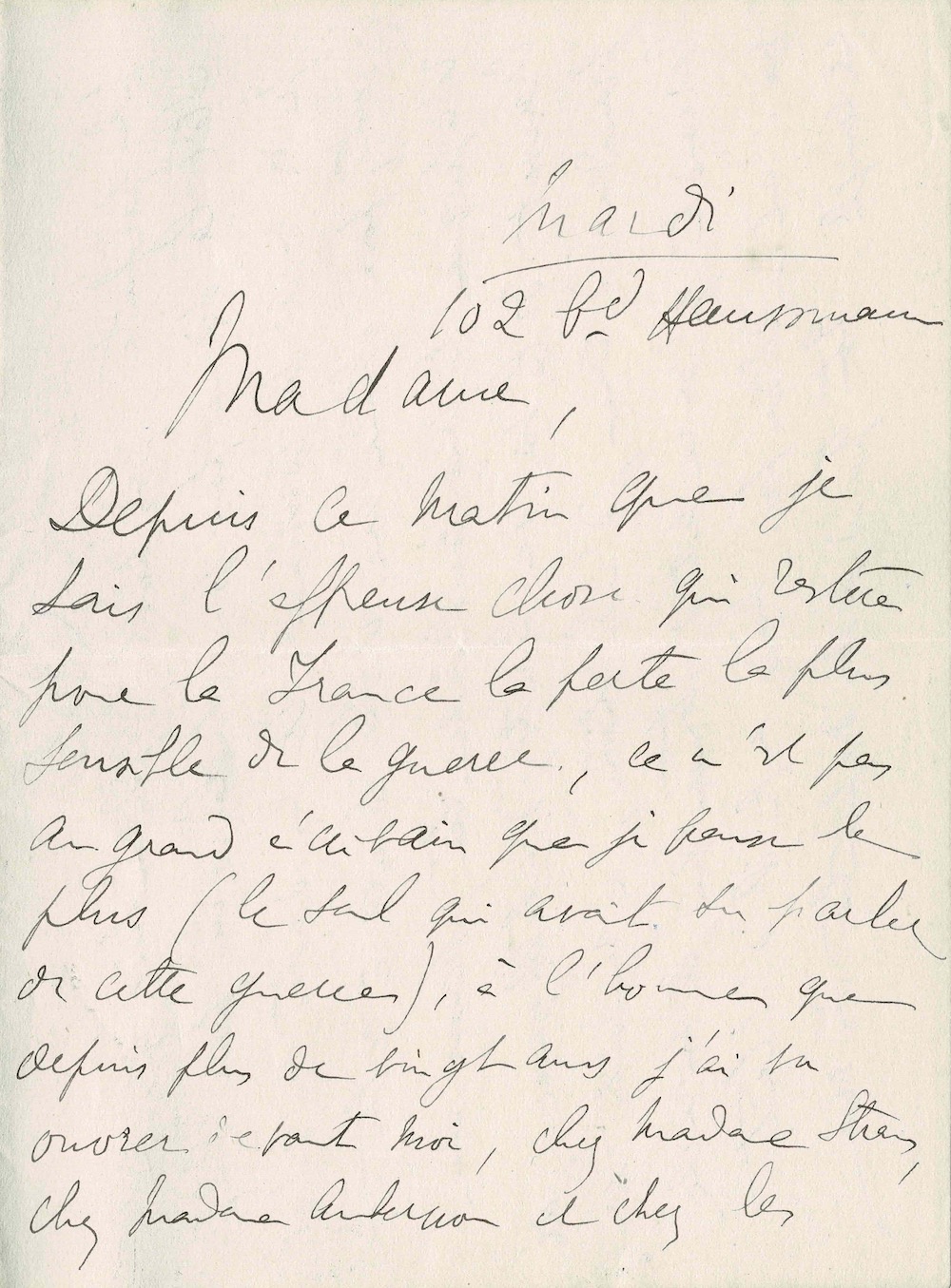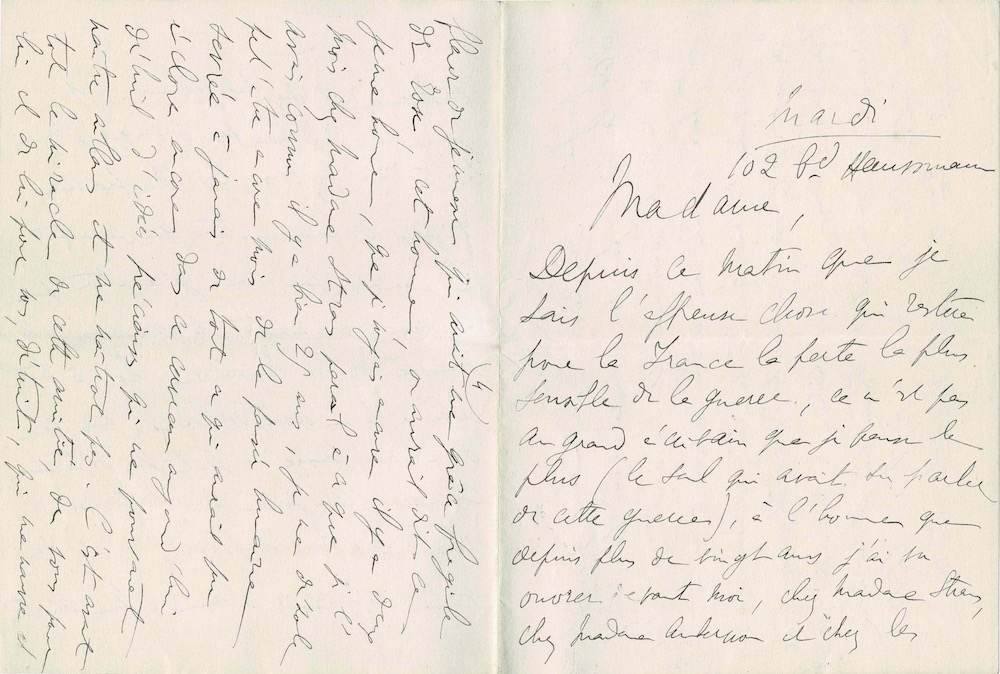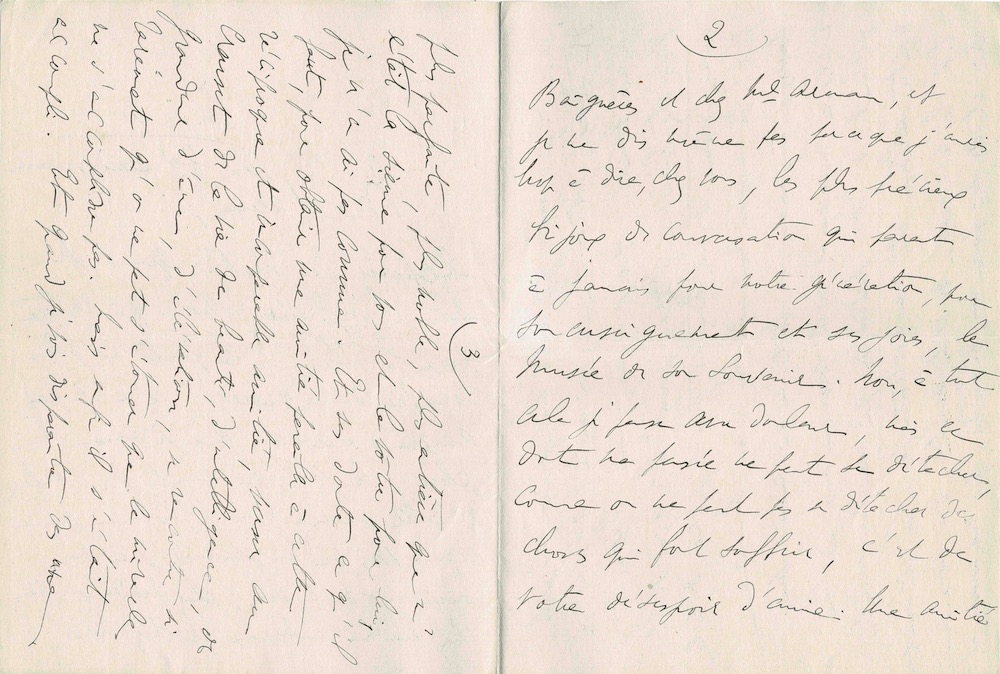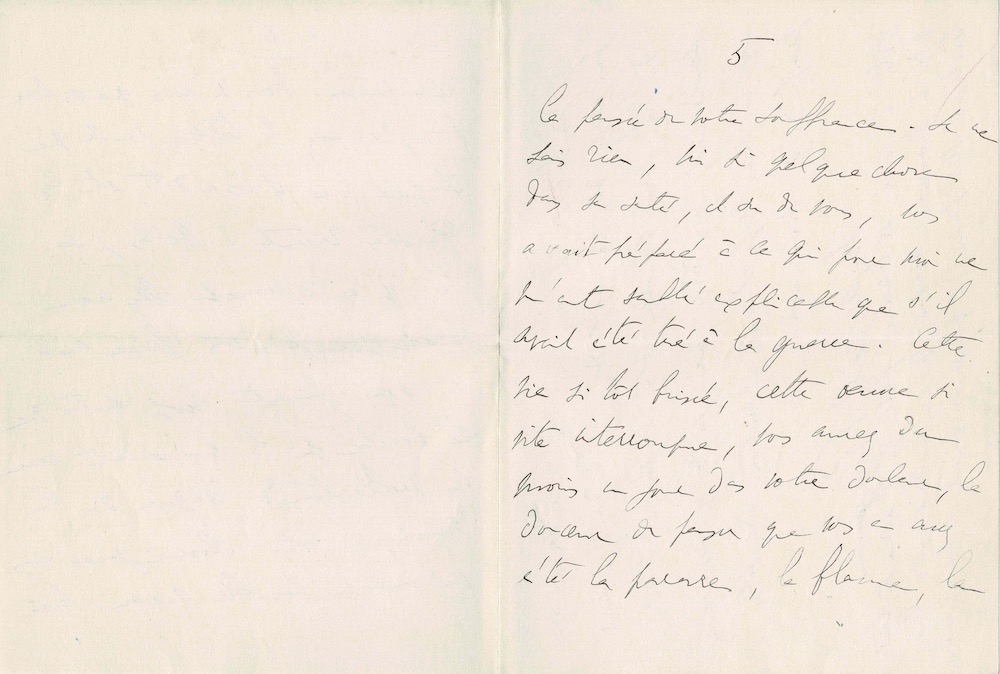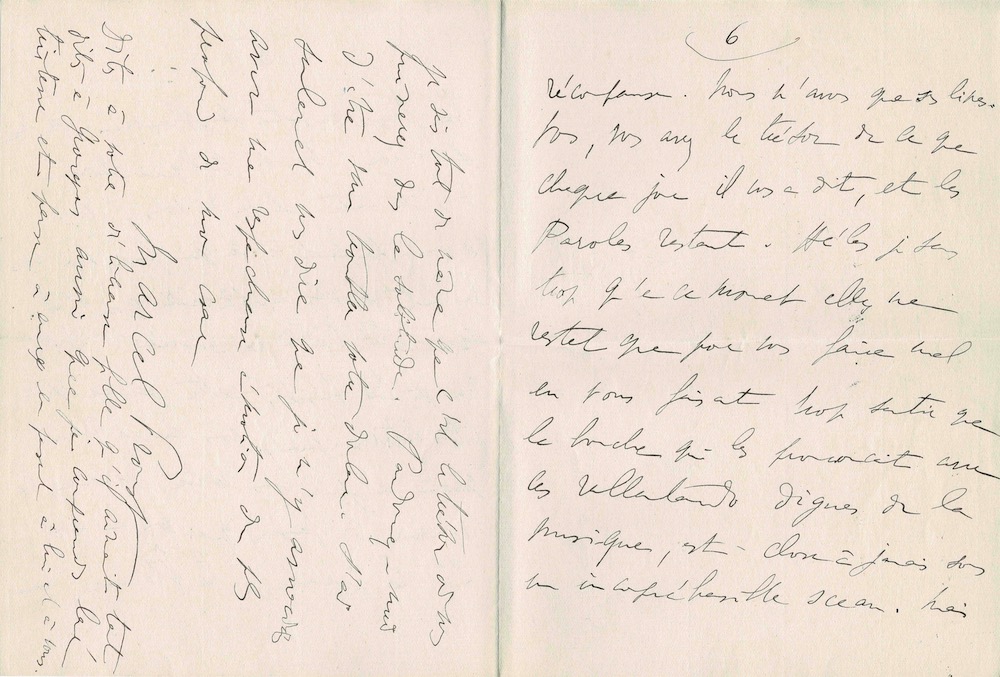Marcel Proust (1871.1922)
Autograph letter signed to Baroness Aimery Harty of Pierrebourg.
Seven pages in-8°. 102 bd Haussmann. Tuesday [October 26, 1915]
Kolb, Volume XIV, pages 252 to 254.
Paul Hervieu, the illustrious lover of Madame de Pierrebourg has just died. Marcel Proust testifies to the latter, with a sublime pen, the extent of his friendship in these circumstances of mourning.
“And when I see disappearing into a flower of youth which had the fragile grace of a rose, this man, one would have said this young man, whom I still saw two months ago at Mrs. Straus's, just as I had known him. twenty-five years ago, I am perhaps even less sorry for human thought, forever weaned from everything that could still have hatched in this brain, today destroyed, from precious ideas which could not be born elsewhere and could not will not be born. »
____________________________________________________________
“Madam, Since this morning I have known the awful thing which will remain for France the most sensitive loss of the war [the death of Paul Hervieu had just been announced by Le Figaro] , it is not the great writer that I think the most (the only one who knew how to talk about this war), of the man whom for more than twenty years I have seen open before me, at Madame Straus, at Madame Aubernon and at the Baignères and at M e Arman, and I'm not even saying because I would have too much to say, with you, the most precious jewels of conversation which adorn forever for our generation, for its teaching and its joys, the Museum of its Memory.
No, I think about all this with pain, but what my thoughts cannot detach from, as we cannot detach ourselves from things that cause suffering, is your despair as a friend. A friendship more perfect, more noble, more complete than his was for you and yours for him, I have not known. And undoubtedly what is necessary, to obtain a friendship similar to this reciprocal and incomparable friendship, to pour into the crucible of the life of beauty, of intelligence, of greatness of soul, of elevation, is encountered so rarely that we cannot be surprised that the miracle is not accomplished. But at last it was accomplished. And when I see disappearing into a flower of youth which had a fragile rose-like grace, this man, one would have said this young man, whom I still saw two months ago at Mrs. Straus's, just as I had known him there. Twenty-five years ago, I am perhaps even less sorry for human thought, forever weaned from everything that could still have hatched in this brain, today destroyed, from precious ideas which could not be born elsewhere and will not be born not. It is above all the miracle of this friendship, of you for him and of him for you, destroyed, which saddens me and the thought of your suffering.
I don't know anything, nor if something in his health, and known about you, had prepared you for what to me would only have seemed explainable if he had been killed in the war. This life so quickly shattered, this work so quickly interrupted, you will at least one day in your pain, have the sweetness of thinking that you were its adornment, its flame, its reward. We only have his books. You have the treasure of what he said to you every day, and the Words remain [allusion to a title by Hervieu].
Alas, I feel too strongly that at this moment they only remain to hurt you by making you feel too strongly that the mouth which uttered them with these rallentando worthy of music, is closed forever under an incomprehensible seal. But I know all the same that it is a treasure from which you will draw in solitude. Forgive me for coming to disturb your pain. I only wanted to tell you that I associated myself with it with respectful emotion from the depths of my heart. Marcel Proust.
Tell your delicious daughter that he loved so much, tell Georges too that I understand their sadness and think of them while thinking of him and of you. »
________________________________________________
Mother-in-law of Georges de Lauris, one of Marcel Proust's comrades whom he met in 1903 and who was a valued advisor for the writing of what would become Contre Sainte-Beuve, Marguerite de Pierrebourg (1856-1943) was initially a painter before turning to writing. Her first novel was distinguished by the French Academy and from 1912 she became president of the Prize for the Happy Life (future Fémina Prize), thus occupying an important place in Parisian literary life. Marcel Proust frequented her salon and consulted her on literary questions. She was notably one of the witnesses to the difficult gestation of the first volume of In Search of Lost Time.

